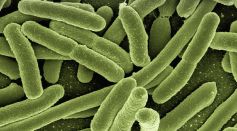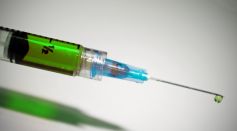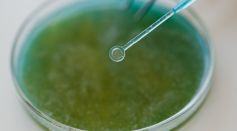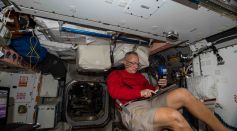Tags: Antibiotic-Resistant Bacteria

New Antibiotic Targets Deadly Bacteria Without Harming Gut Microbiome: A ‘Smart’ Drug?
Superbugs in Canine Poop: More Than 50% of Pet Dogs With Diarrhea Carry Antibiotic-Resistant E. coli Bacteria
Lipid Nanoparticles From Combined Treatments Show Potential in Killing Antibiotic-Resistant Bacteria

Antibiotic Resistant Bacteria That Could Cause Hospital Acquired Infection Found in Hospital Wastewaters, Study Reveals

Antibiotic-Resistant Bacteria Found in 40% of Sampled Meat from Supermarkets; Scientists Advise To Limit Usage of Antibiotics Among Livestock, Thoroughly Cook Meat, Disinfect Cooking Utensils

Dogs Fed With Raw Meat Have Antibiotic-Resistant E.coli and Other Bacteria That May Be Passed to Humans

Hospitalization During COVID-19 Pandemic in US Linked to Antimicrobial Resistance Increase
Microbial Nanomotion Measured How Bacteria Stop Producing Sounds When Killed by Antibiotic

Recurring Urinary Tract Infection Solution: Scientists Use Whole-Cell Vaccines To Solve Antibiotic-Resistant Bacteria

Smart RNA Targeting Could Be the Solution for Antibiotic-Resistant Bacteria

Antibiotic-Resistant Bacteria Found in Dog Food Across Europe, Making It an International Health Risk
New Nanothin Coating Kills Superbugs, Fungi, Bacteria: Here's How It Works

Scientists Discover How to Fight Antibiotic-Resistant Bacteria

How Does Bacteria Behave in Space?

Antibiotic-Resistant Bacteria May Now Be Controlled: Researchers Developed Antibacterial Liquid Metals Aims to Destroy These Bacteria
Study Reveals New Method in the Fight Against Antibiotic Resistant Bacteria
Hospital Patients Have “Superbug” Antibiotic-Resistant Bacteria on Their Hands in Early Hospital Stay, Study Says
Honey Bees Could Combat Antibiotic-Resistant Bacteria
Ancient 425-Million-Year Old Bacteria ‘Enterococci’ Responsible For Antibiotic-Resistant Superbugs
Antibiotic Resistant Bacteria: Newest Threat To Human Health, Deadlier Than Cancer If Left Unchecked
Most Popular

Trump Administration Declares COVID-19 Likely Originated from Wuhan Lab Leak, Citing Scientific Evidence

Largest Known Volcanic Aquifer Discovered Beneath Oregon's Cascades

New 'Supergiant' Sea Bug Found in South China Sea, Named After Darth Vader

Mediterranean Sea Was Refilled by a Catastrophic Flood Millions of Years Ago





